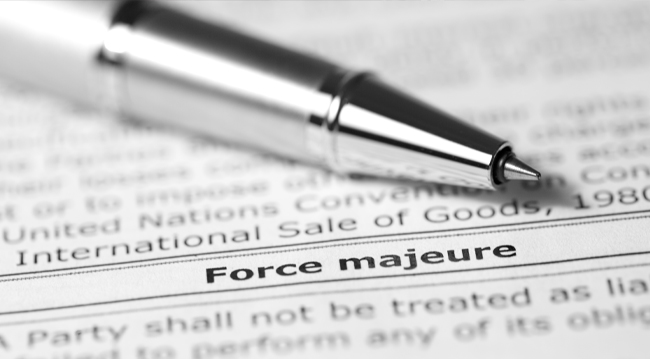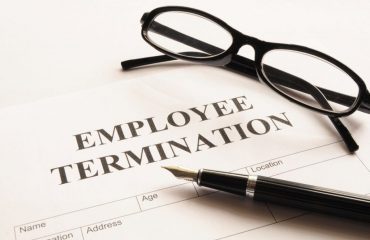On February 26th, 2020 Pakistan confirmed its first two cases of the novel Carona virus also known as Caovid-19. On March 20th, 2020 the first death from the virus was reported and simultaneously discussions within the Government circles and the National Disaster Management Authority of Pakistan commenced on a lockdown as being the most effective way to combat the spread of the virus. By now most of the countries in the world were already under lockdown and the province of Sindh in Pakistan which had reported the initial spike in cases had already gone into lockdown. Around March 22nd 2020 the federal government ordered lockdown of the capital and the various provinces where the ruling PTI had a majority in governance also ordered lockdown. While to date the Government of Pakistan has not termed the shutting down of businesses, entertainment, and schools as a complete lockdown however it has in fact been just that. As I write this article, schools, non-essential businesses and even the OPD of hospitals remain closed with the total infections in Pakistan standing at 10,500 and deaths at 250.
Pakistan has been fortunate that the number of deaths in the country is no where near the catastrophe taking place in the United States and Europe, of course a major reason is probably because testing in Pakistan is negligible when compared with these countries. Pakistan’s economy which was already fragile has taken a big hit because of the closure of businesses. There is now talk of easing the lockdown with precautions however with the number of cases increasing a complete resumption of business may be off for quite a few months.
With our firm’s experience with working on infrastructure projects and having seen first hand the manual work involved in testing and evaluating matters physically at various project’s of clients, the work from home model can only work for executives or higher management and the physical presence of engineers and the like are required to physically carry out work. Since the skilled staff cannot work on the Sites hence it is safe to say that the progress on infrastructure projects like all other works requiring physical presence has ground to a halt.
Contract Clauses
We have started reviewing these contracts from the perspective of the various questions that arise as a result of the effect of Covid-19 on these contracts. The present situation worldwide is best described as one of extreme uncertainty. With no vaccine in place or at least for the foreseeable future it cannot be estimated as to how long the lockdowns will continue in Pakistan and elsewhere. For now, the clients we work with have not simply complied with orders of closure of business. An immediate cause of Covid-19 on these projects appears to be a delay in the completion of projects. Even if the Government of Pakistan tomorrow gives the signals to open up the businesses most of the imports and machinery that these projects require may be delayed on account of countries which export the same may still be under lockdown. It is an extremely unique situation where both the Parties to a contract are suffering equally under the lockdown. The operative word being “suffering equally” which will actually lay down the basis of this article.
Normally all contracts contain clauses on Price Escalation and Force Majeure events, these clauses have particular importance for contracts which deal with infrastructure. The usual Price Escalation clauses pertain to an escalation on account of change in law and particularly change in the tax regime otherwise a party to a contract is required to quote a definitive price at the time of submitting the response to a tender and to then strictly adhering to this price. Similarly, Force Majeure events cater to situations which have effected one party and are beyond the control of the party. These normally pertain to Acts of God, War and Epidemic. A major component of the Force Majeure clause is the requirement by the effected party to mitigate the effect of the Force Majeure event and also to inform the second party as soon as possible of the event. A delay in informing the second party to the contract of the Force Majeure event or in fact trying to mitigate the effect may render the effected party unable to fully avail the benefit of the event which may be a suspension of the contract, reducing liabilities of the effected party and may also result in an escalation of price. This is however how the occurrence of a normal Force Majeure event may be handled under a contract.
For a Force Majeure event to occur it should be beyond the control of a party to a contract, the event should be notified to the other party at the earliest and the effected Party in some instances also needs to demonstrate the steps it has taken to mitigate the effect of the Event. However given that the Covid-19 is not your usual Force Majeure event the following can be helpful in assessing the situation:
• In the case of Covid-19, the effect in most contracts worldwide is on both Parties, Governments have ordered the closure of business and both Parties to the contract appear to be suffering equally.
• In the case of Covid-19 it is perhaps too soon for Clients to be thinking of invoking Force Majeure clauses.
• The issue of delay in invoking the clause if raised at a later stage may be attributed to the fact that offices being closed the client lacked the necessary resource and advice to review the situation from a Force Majeure point of view.
• Invoking the Force Majeure clause this early on into the lockdown may be viewed in bad taste by the other Party.
• With the economies everywhere taking a hit if the Government is a party to a contract involving infrastructure construction being beneficial to the country, it can be expected that the Government may give in to a degree to the concessions requested by the effected party at a later stage.
With SARS the PRC Supreme People’s Court had ruled that the SARs epidemic constituted a Force Majeure event in dealing with contracts however to date we are not aware if any such ruling has been issued in terms of the Covid-19 Pandemic.
It would be perhaps best to review the evolving situation and to review any communication received by the other party to the contract in the context of the relevant legal provisions of the Contract.
This publication is provided for your convenience and does not constitute legal advice. This publication is protected by Copyright. (c) 2020 Yousaf Amanat & Associates




